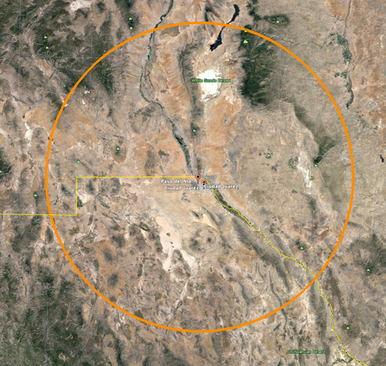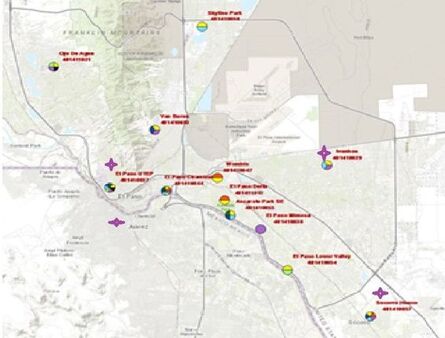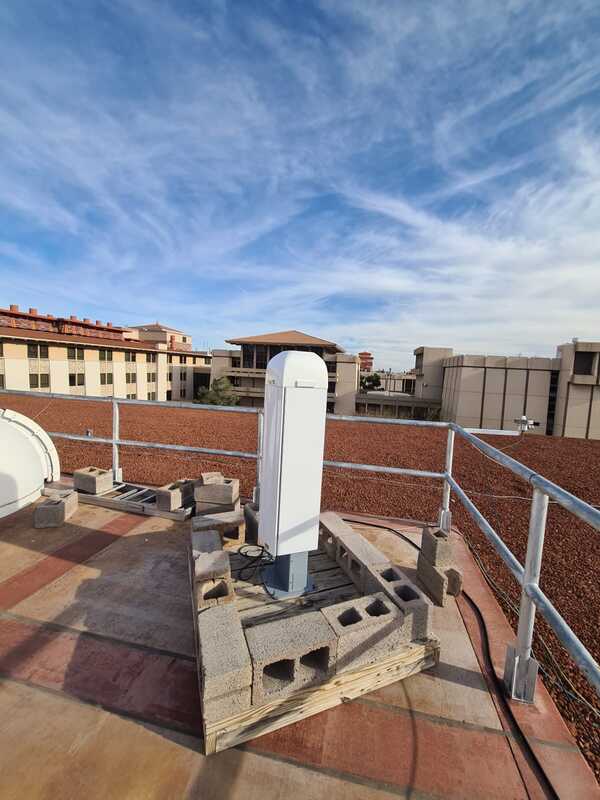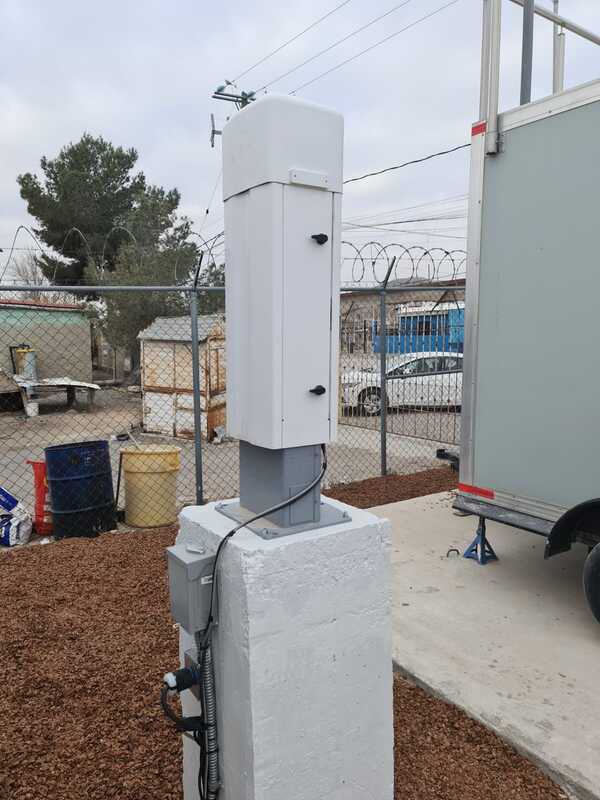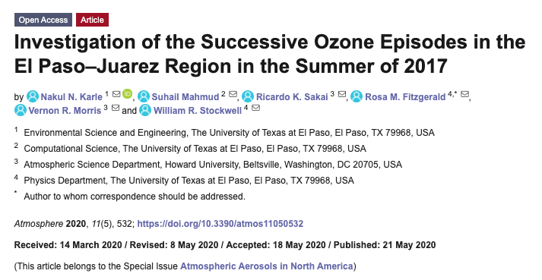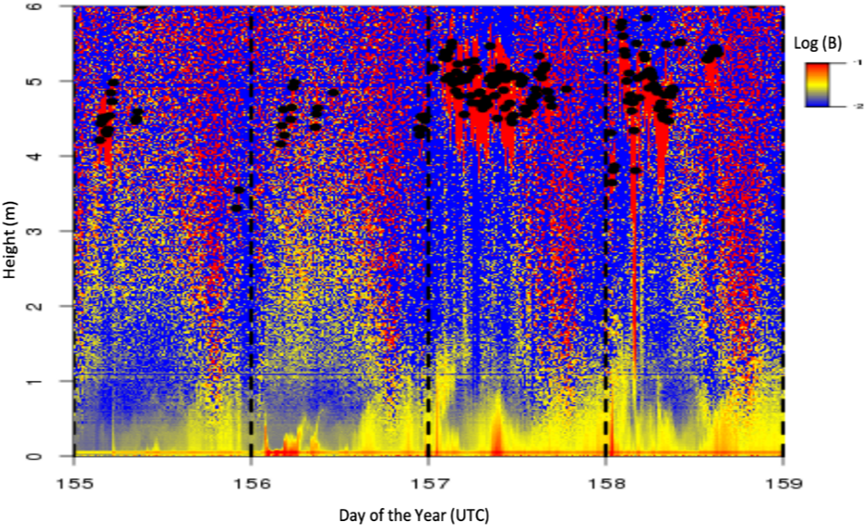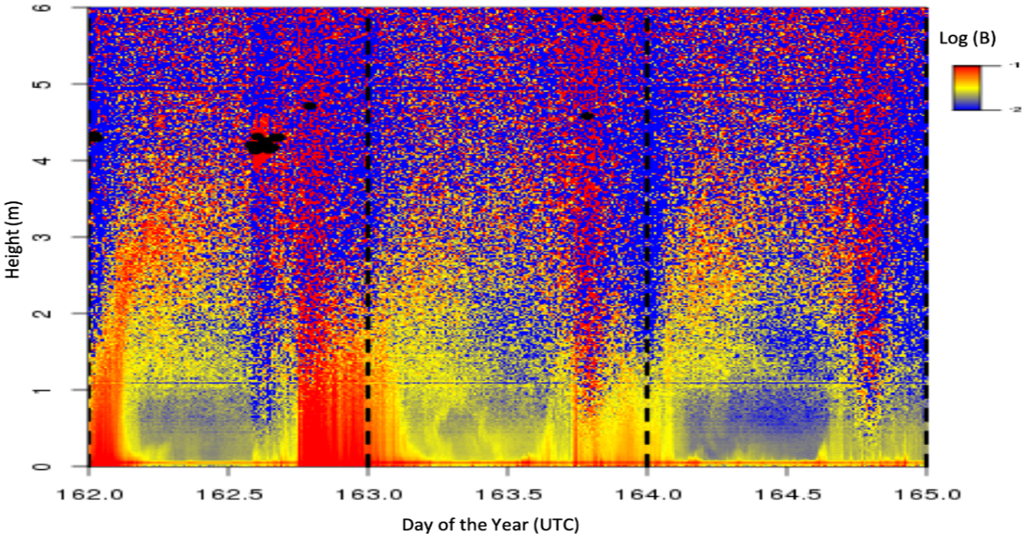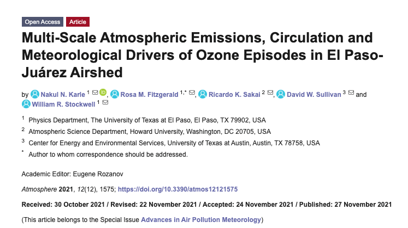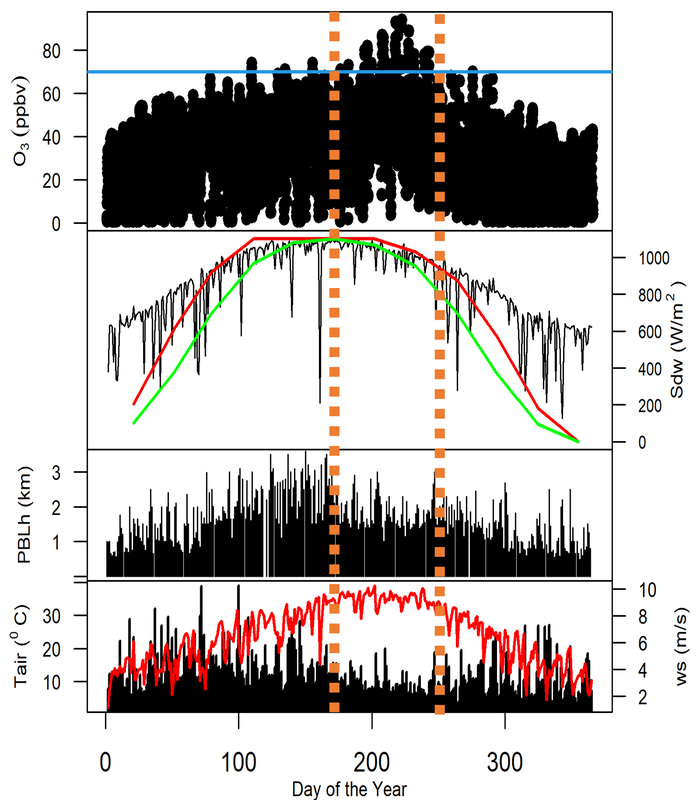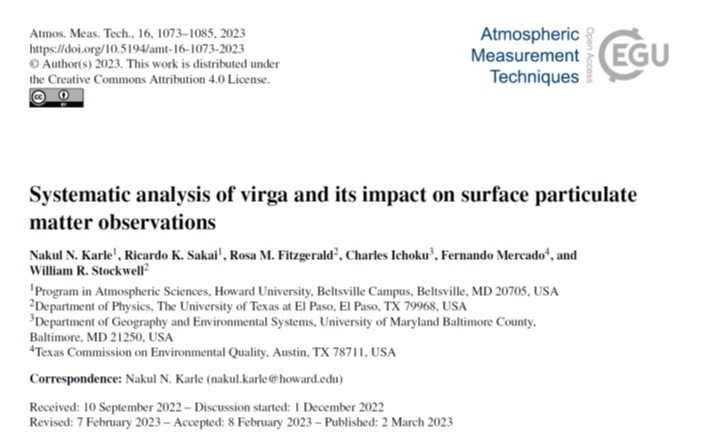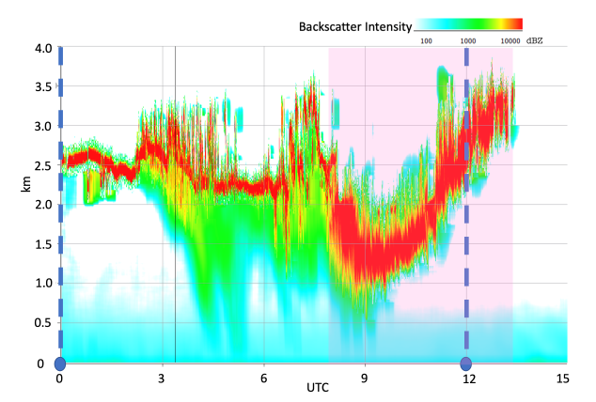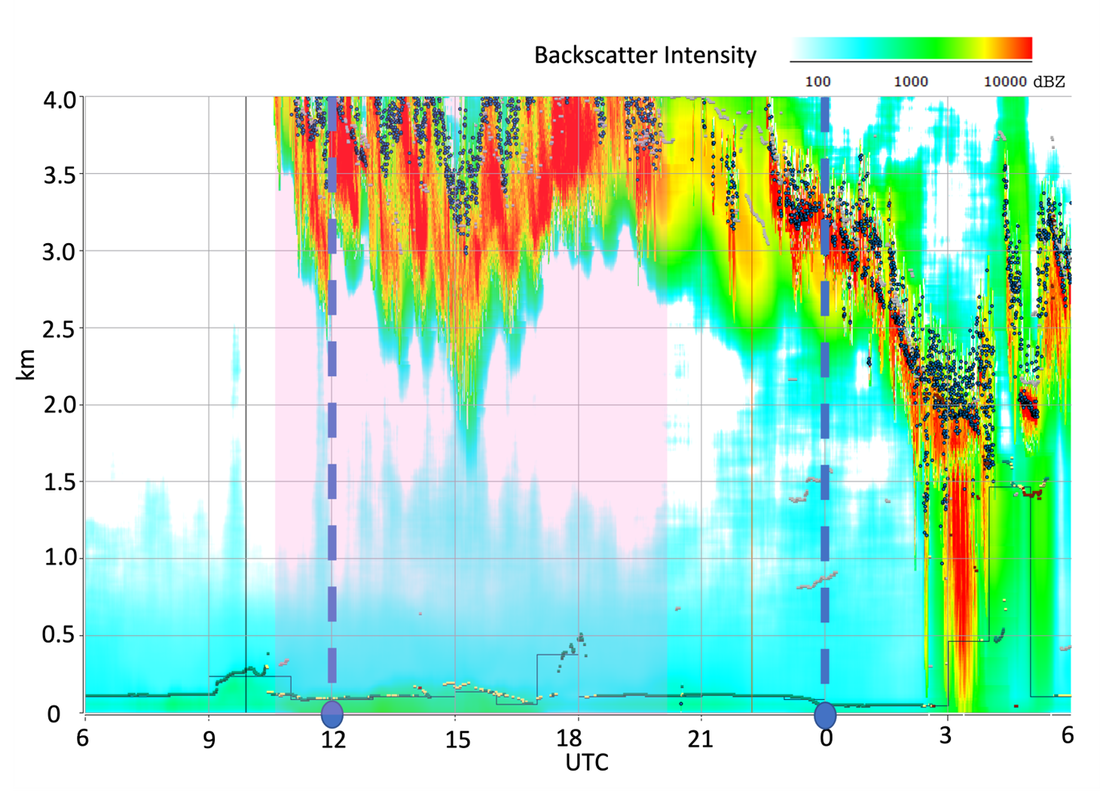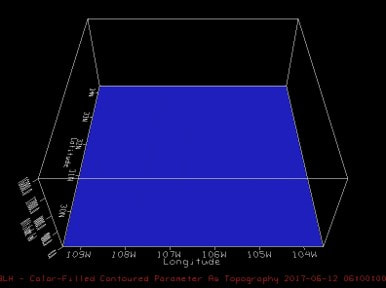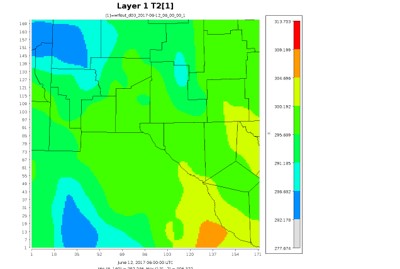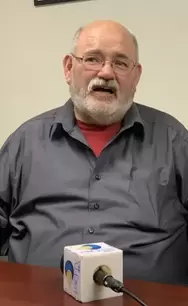Webinar: Atmospheric Sciences. The Paso del Norte Air Basin and Beyond
|
Dr. Rosa M. Fitzgerald
Atmospheric Physics Studies in the PdN Region (Click to download presentation) |
|
Dr. William Stockwell
New Chemical Approaches for Air Quality Modeling (Click to download presentation) |
project Description
The immediate proximity of Ciudad Juárez and El Paso, together with a complex topography, makes apportionment of air pollution challenging. Ceilometer data, which provides planetary boundary layer heights (PBLHs), in conjunction with other meteorological and air quality data (e.g. aerosol backscatter), help determine the local transport of pollutants across the border and support future required meteorological modeling. Measuring the PBLHs, together with other meteorological parameters, is key to understanding and ultimately mitigating ground-level ozone.
A ceilometer measures the cloud-base height and the PBLHs. The PBLH data are important for understanding air pollution development, transport and dispersion, which are integral to modeling and forecasting of ozone and particulate matter.
A ceilometer measures the cloud-base height and the PBLHs. The PBLH data are important for understanding air pollution development, transport and dispersion, which are integral to modeling and forecasting of ozone and particulate matter.
“The Planetary Boundary Layer (PBL) is that part of the troposphere that is directly influenced by the presence of the Earth’s surface, and responds to surface forcings with a timescale of about an hour or so.”
Map of Paso del NORTE NETWORK Ceilometer LOCATION
oUR CEILOMETERS
PUBLICATIONS
pbl impacts
Meteorological Drivers of Ozone Episodes
Virga Studies Using Ceilometers
MODEL SIMULATIONS
Publication:
Suhail Mahmud, Nakul Karle, Rosa M. Fitzgerald, Duanjun Lu, Nicholas Nalli, William R. Stockwell, Intercomparison of Sonde, WRF/CAMx and Satellite Sounder Profile Data for the Paso Del Norte Region”, Aerosol Science and Engineering,4, 277-292, 2020.
Suhail Mahmud, Nakul Karle, Rosa M. Fitzgerald, Duanjun Lu, Nicholas Nalli, William R. Stockwell, Intercomparison of Sonde, WRF/CAMx and Satellite Sounder Profile Data for the Paso Del Norte Region”, Aerosol Science and Engineering,4, 277-292, 2020.






